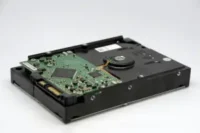How to Identify and Solve Laptop Speaker Issues in Minutes
Published: 30 Dec 2024
Have you ever wondered why your laptop’s sound feels muffled, even at high volume? Is it the speaker’s issue, or is there another problem? You can fix these frustrating issues. Testing the quality of a laptop speaker might help you find out what the issue is and how to enhance the sound on your laptop. Join us in this article to learn how to get a clear laptop sound.
1. Steps to Test Laptop Speaker Quality
Want to know how well your laptop speakers perform? Follow these easy steps to check audio clarity, volume balance, and sound quality using simple tools and settings.
1. Play Different Audio Types
Start by hearing a selection of audio and video files, such as:
1. Music Tracks: Choose songs with clear vocals and instruments. For example, play a pop song with a strong bass and treble.
2. Videos: Select a video that combines conversation and background music.
3. Podcasts or calls: Listen to audio recordings of discussions to check voice clarity.
Check for clarity, balance, and overall sound quality.

2. Use Online Speaker Test Tools
Online tools can help you test the left and right sides of your speakers separately and also together. For example:
1. Stereo Test: Listen to both the left and right speakers to verify if the sound is balanced.
2. Frequency Test: Determine how well your speakers can handle high and low tones.
3. Volume Test: Slowly turn up the volume to detect distortion or cracking.
An online speaker test is recommended as one of the most reliable solutions for testing speakers. Try our Laptop Speaker Test Tool to check your speaker’s performance.
3. Adjust Audio Settings
Most laptops let users adjust the sound settings. Here’s how.
1. Access Sound Settings: Navigate to the control panel or system preferences.
2. Use Equalization: To improve audio quality, adjust the bass, treble, and other frequencies.
3. Test Enhancements: Enable features such as loudness equalization to ensure equal volume.
2. Common Issues with Laptop Speakers
1. Low Volume: Many laptops have tiny drivers that can’t generate loud music.
2. Distorted Sound: The sound may crackle or lose quality at higher volumes.
3. Unequal Sound: Occasionally, one speaker may sound louder than the other, troubling the balance.
4. Background Noise: Static or buzzing sounds indicate hardware problems.
3. Tips to Improve Speaker Quality
Improving laptop speaker performance is easy. Here are practical tips to help you get clearer and louder sound effortlessly.
Update Your Audio Drivers
Outdated drivers can impact audio performance. To update:
1. Open the device manager.
2. Find the audio drivers and choose “Update Driver”.
3. Follow the steps to finish the process.

Clean the Speakers
Dust and dirt can reduce sound generation. Use a soft brush or compressed air to clean the speaker grills.
Use External Accessories
For improved audio, consider:
1. External Speakers: Compact choices, such as Bluetooth speakers, provide stronger and better music.
2. Headphones: A good pair of headphones can give a complete hearing experience.
Optimize Placement
Make sure your laptop is on a hard, level surface. This improves the reflection of sound waves, resulting in increased clarity and loudness.
Related Article
4 Simple Ways to Test Your Laptop Microphone
3 Simple Methods to Test Your Laptop Webcam
Why does one speaker sound louder than the other?
Unequal sound balance could be due to incorrect audio settings or a hardware problem with the speaker. Check your sound settings for balance adjustments and test the speakers separately with an online tool. If the problem continues, your speaker might need a skilled repair.
Are external speakers better than built-in laptop speakers?
External speakers generally provide higher sound quality since they’re larger and built for superior sound delivery. Built-in laptop speakers are helpful but often lack volume, clarity, and bass. If you want better sound, external speakers are a great choice.
How do I know if my speakers are damaged?
Signs of damage consist of crackling sounds, muffled audio, or no sound at all. Test your speakers with different audio files and use online tools to confirm any issues.
Can I fix laptop speaker issues on my own?
You can fix common problems like incorrect settings, dust buildup, or outdated drivers on your own. For hardware troubles, however, professional help can be needed. Start by troubleshooting with straightforward steps like cleaning and updating drivers before getting repairs.
Conclusion
There’s no need to make testing your laptop speakers hard. You can find problems and optimize music performance by following these steps and tips. Updating and maintaining speakers frequently will make sure they work at their best, whether you’re watching movies or listening to music. Test and adjust laptop speakers right now for the best sound quality possible—great sound makes all the difference!

- Be Respectful
- Stay Relevant
- Stay Positive
- True Feedback
- Encourage Discussion
- Avoid Spamming
- No Fake News
- Don't Copy-Paste
- No Personal Attacks

- Be Respectful
- Stay Relevant
- Stay Positive
- True Feedback
- Encourage Discussion
- Avoid Spamming
- No Fake News
- Don't Copy-Paste
- No Personal Attacks





